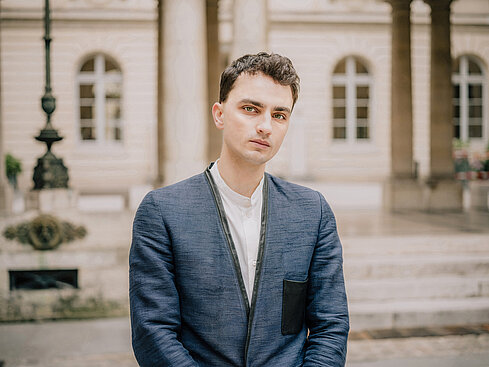2023 Award Finalist Dr. Adel Al Jord

Of Syrian and Russian origins, Adel Al Jord grew up in Dubai where he attended an American High-School before moving to his now adoptive France for university studies. He trained at the Manga-Orlow laboratory of New York University, before obtaining a PhD in Cell & Developmental Biology with Alice Meunier & Nathalie Spassky at the Ecole Normale Supérieure in Paris. Recently, Adel was an EMBO New Venture Fellow with Lucas Pelkmans at the University of Zurich. He is currently a Collège de France Research Fellow in Paris, working with Marie-Hélène Verlhac & Marie-Emilie Terret at the Center for Interdisciplinary Research in Biology, and will soon transition to a group leader position. Adel’s cross-disciplinary research investigates mechanisms of organelle remodeling in cells that, on an organism scale, sustain health or promote disease.
Synopsis of research
Organisms develop as cells proliferate and differentiate. These universal processes depend notably on cytoplasmic reorganization driven by the cytoskeleton and force-generating motors. Their activity generates active force fluctuations that stir the cytoplasm, agitating, displacing, and penetrating the nucleus. With an interdisciplinary approach, we investigated the unknown impact of these forces on the nucleus interior in female germ cells, named oocytes. We found that oocytes deploy cytoplasmic forces to timely impose critical changes in the internal organization of the nucleus for the success of ensuing oocyte divisions that drive female fertility. By agitating the nucleus, the forces remodel nuclear organelles known as biomolecular condensates, thereby mechanically regulating their key function: RNA processing. Cytoplasmic forces are thus functional remodelers of the oocyte nucleus, ensuring transcript quality for optimal oocyte development. Beyond reproductive biology, this study ventured into unexplored grounds of mechanobiology, revealing a new function for the cytoskeleton and a new mechanism of condensate mechano-regulation. This grants fresh perspectives on condensate-linked pathologies like cancer, neurodegeneration, and viral infections, which intriguingly also associate with cytoskeletal changes.
